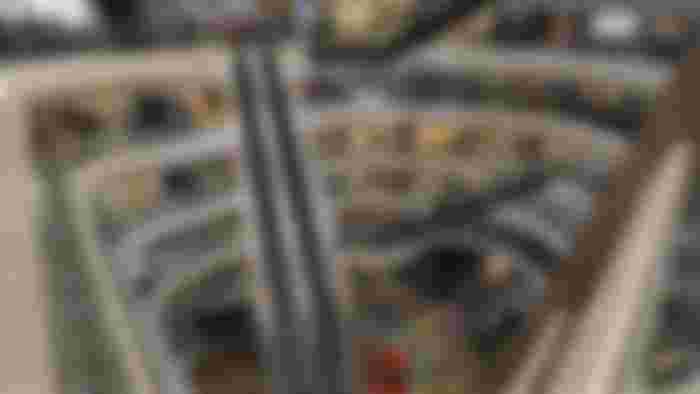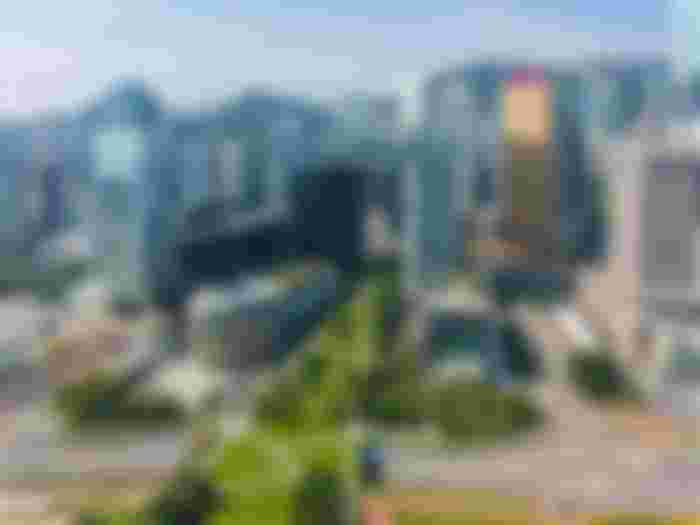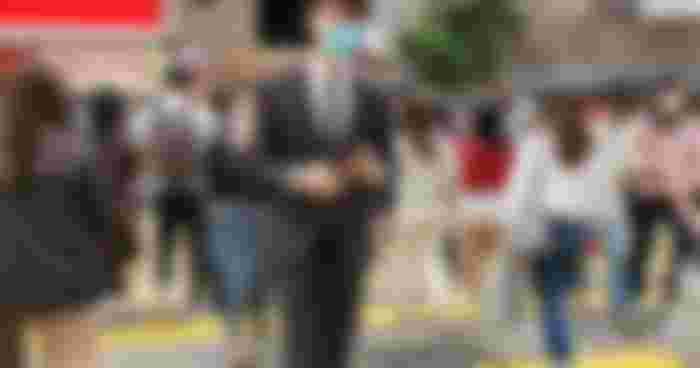November 2, 2020

If you will walk in the streets of Hong Kong, you will see that malls, restaurants, stores, and other establishments are fully open, even gyms and nightclubs, none of them have closed at all despite the coronavirus outbreak.
Hong Kong reported its confirmed covid19 case on January 22, 2020. The city did go to phased closures of government offices, schools, and bars, but other services are unaffected, such as restaurants and other dining services, malls, shops, public transits, and trains.
Out of 75 million people in Hong Kong, it only recorded around 1,200 cases for the end of June. As a percentage, this amounts to an infection rate of less than 1%. Being just a few miles away from mainland China where the virus occurred, it is pretty impressive that the city only recorded less than a 1% rate of covid-19 cases.
Compared to Singapore which is another dense city in Asia, the city recorded more than 43, 000 cases amid an outbreak in migrant worker housing. Both cities recorded similar infected rates at the start, but Singapore recorded a surge of cases causing the city to enact lockdown measures. By contrast, Hong Kong has zero cases in consecutive weeks.
On the other hand, the United States, with more than 80,000 confirmed deaths from COVID-19. There are no developments on the necessary safety measures to contain the situation. By contrast, Hong Kong only had four confirmed deaths in total over the past many months.
Hong Kong being a dense city, the situation could have been bad. Public transits are always packed, cities are always crowded by different locals and tourists. High-rise housings are squeezed into scarcely available space. There is only limited open public space, and a small room to naturally spread out. In fact, more than two and a half million people arrived in Hong Kong from mainland China in January. However, the people kept up their vigilance in responding to the pandemic crisis.
So, how exactly did Hong Kong do it?
Here are the five factors which resulted in the city defeating the covid-19 while avoiding the lockdown.
1. SARS Trauma
At the end of January, most people on the streets of Hong Kong were already wearing face masks. Not because the government required it, but because Hong Kong people remember what happened in 2003.

The Severe Acute Respiratory Syndrome (SARS) affected the city particularly hard in 2003. It eventually infected 1,755 people. 299 Hong Kong people died in 2003, which includes the eight healthcare workers, denoting a casualty rate of 17 percent. The SARS outbreak was deemed the gloomiest period in Hong Kong’s history. [¹]
Due to the crisis, the government has created the Center for Health Protection which specializes in disease prevention and control.

Because of their experiences, Hong Kong people are much more alert and intelligent when facing the covid-19 outbreak. When they heard about the virus, they really took it seriously. People already know what exactly to do to control the virus and the consequences that could happen if they do not take all the safety measures against the virus.
2. Strict protocols and border control

In late January, Hong Kong increased its response to the highest emergency level and has since carried out a range of safety measures to contain the coronavirus. Nine borders were closed leaving the remaining free opened to facilitate the flow of goods. As the situation escalated, all non-residents were banned from entering the city, starting on March 25. Those who arrived had to go through a strict 14-day quarantine regardless of its negative test results.

Those who will be quarantined are required to wear an electronic wristband. It allows the government to track the location of the wearer through an app at all times. And those who will not follow the protocol will be fined HK$25,000 ($3,225) and six months imprisonment.
The city gradually lowered some of its border controls as infection levels plunged at the end of April.
3. Contact tracing
Contact tracing is used to locate people who may have been exposed to Covid-19.

Since March 19, 2020, all arrivals from overseas to Hong Kong are mandated to go through mandatory 14-day isolation whether at home or a designated hotel.
Anybody who would have had contact with the confirmed case is also required to self-isolate. All cases in Hong Kong are highly investigated, from their whereabouts to places they have been to, and the government will immediately contact those establishment owners to conduct immediate safety measures. The Hong Kong government has an interactive map online that shows detailed information about all the confirmed cases in the city, such as the residents and how they are infected.
4. Centralized Government

Another factor that likely helps combat the covid-19 is the fact that the city has a centralized government.
Different cities and counties around the world have been accused of mismanaging the covid-19 outbreak. For example, those countries like the US has a different approach as a response to the pandemic crisis, and the big population makes it much more challenging for the government to contain the virus. The British response, on the other hand, was one that lacked a clear strategy.
Meanwhile, Hong Kong already had a Center for Health Protection specializing in disease prevention and control, which was created in the wake of the SARS crisis. Furthermore, the small population of Hong Kong made it easier for the government to monitor and control the activities of its people as opposed to how it is to cities and countries with a bigger population.
5. Cultural outlook and Political factor

The final factor of how Hong Kong combat covid-19 is because of its cultural habits. The cultural outlook plays a large role in the way the outbreak has been contained in a place like Hong Kong.
According to Professor Fukuda, professor and director at the School of Public Health at The University of Hong Kong told CNBC,
"In Asia, there is a very significant degree of concern about other people, about taking care of each other," he said. "In the States, it has really exposed that there are big cultural differences in the country. So, whether you are in rural areas or the cities, whether you are in red states or blue states."
Fukuda also emphasized how politicization hindered the U.S. to contain the pandemic. The government received backlash from the public when it tries to impose safety measures amid covid-19. Wearing face masks have become a stream of controversy as many Americans insist that it is against individual freedom. The anti-face mask stance is also stronger amongst Republicans than Democrats, including political figures.
Whereas, in Hong Kong, the pandemic has brought people closer together. And due to the trauma of the people brought by SARS, the government and the people always have a positive approach to public health issues. Citizens together with foreign workers always follow the protocols amid covid-19 which helps the country combat the coronavirus.
In more than three years of living here in Hong Kong, the first thing I have noticed is, people are always alert and intelligent when it comes to handling cases like virus outbreak and even upcoming typhoon. People have their 'Sentido Common' on what things to do, what necessary stuff you need to store, and how to deal with the current circumstances.
The government gives financial support to all citizens regardless of its status (rich or poor) to buy necessary stuff for the pandemic, such as face masks, sanitizers, house cleaning materials, and more. As early as January, classes are suspended to protect the students from being infected by the virus, and online classes are implemented. The classes only resumed last month of August to take their last academic examination. After the summer break, schools started its new school year in September and all are back to normal.
As of now, office workers are back in business. The city also reopened its gyms and even nightclubs. At restaurants, no more social distancing, and tables can be occupied by more than 2 persons. Unlike these past few months that only two persons are allowed to occupy each table.
In fact, the citThe of a competent government when Chief Executive, Carrie Lam, failed to impose an effective response to the long-run protest movement which flooded the city in 2019. And the city's economy was already in a slump even before the coronavirus outbreak.
But due to people's initiative and cooperation, maintaining safety measures, following the protocols, it is truly impressive that the city has managed to defeat the coronavirus and avoid stringent lockdowns. Hong Kong also teaches that even when the government is not that helpful, people are not helpless.
Everything now is back to normal except for people wearing masks while outside their homes and mandatory temperature checking when entering any establishments. I can say that I am blessed and lucky that I am here in Hong Kong during this pandemic crisis - safe and secured.
Written by: @Jane
Sources:
[¹] https://www.google.com/amp/s/hongkongfp.com/2017/02/19/pictures-hong-kong-2003-sars-epidemic/
Lead image from coronavirus.gov.hk








If only there was a better system here and an actual pand3mic plan but i don't think people learned from the sars outbreak despite the fact that we can very well afford treatment naman.